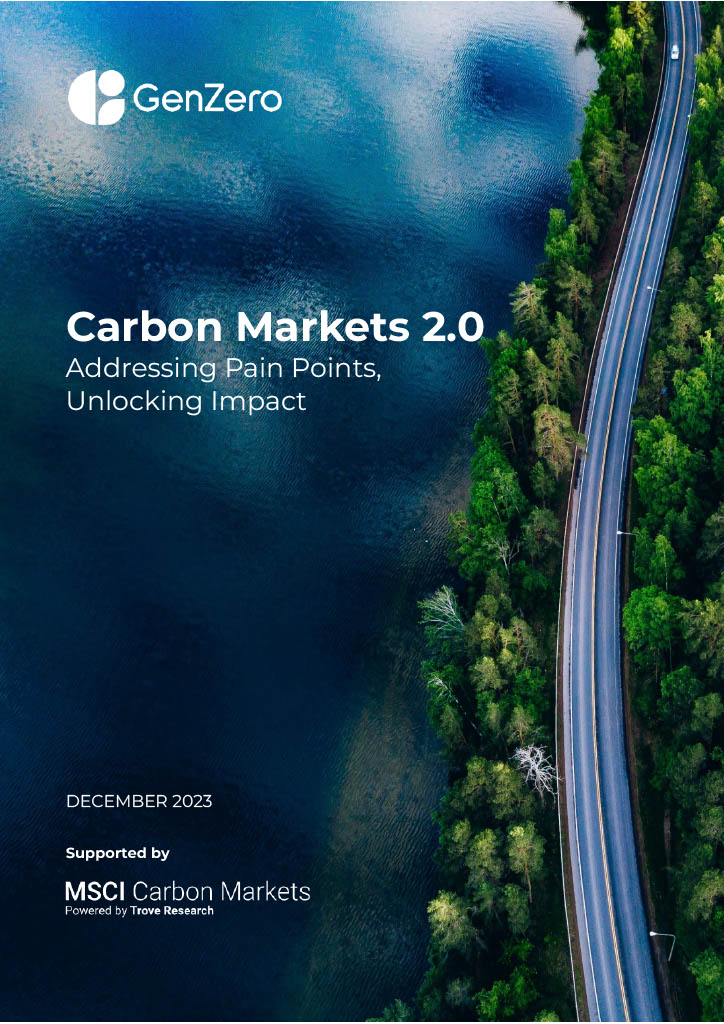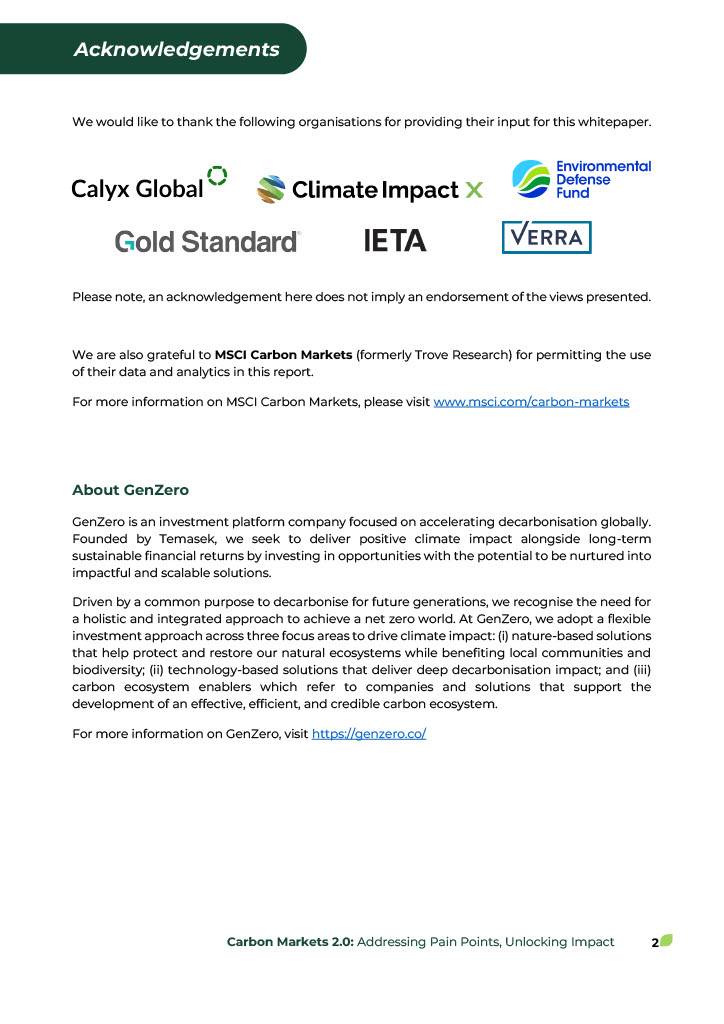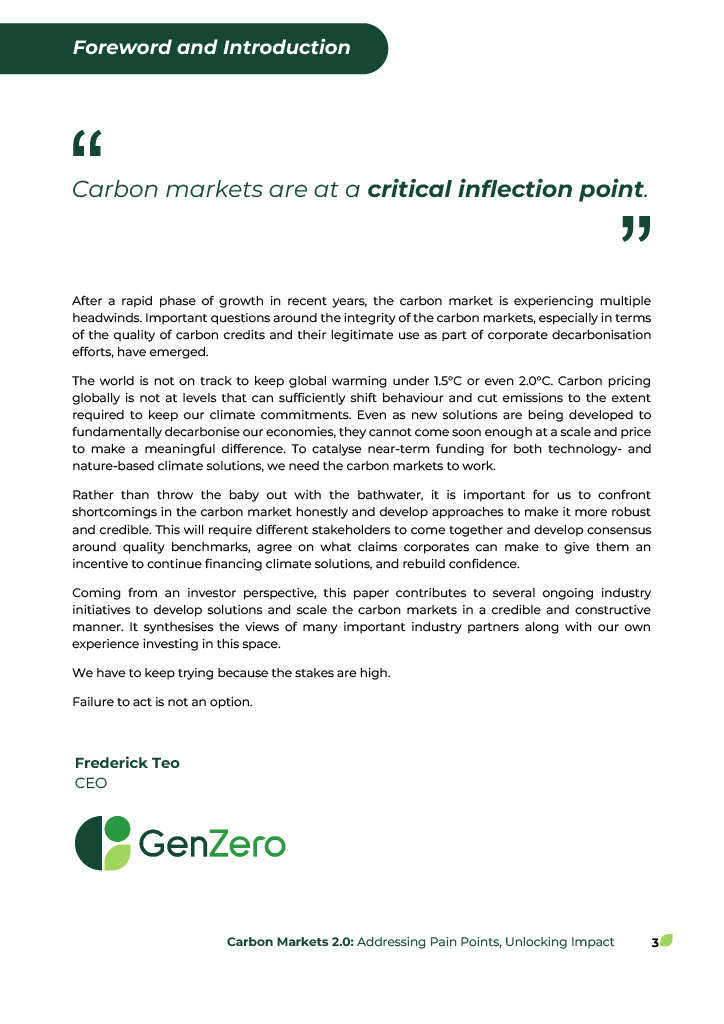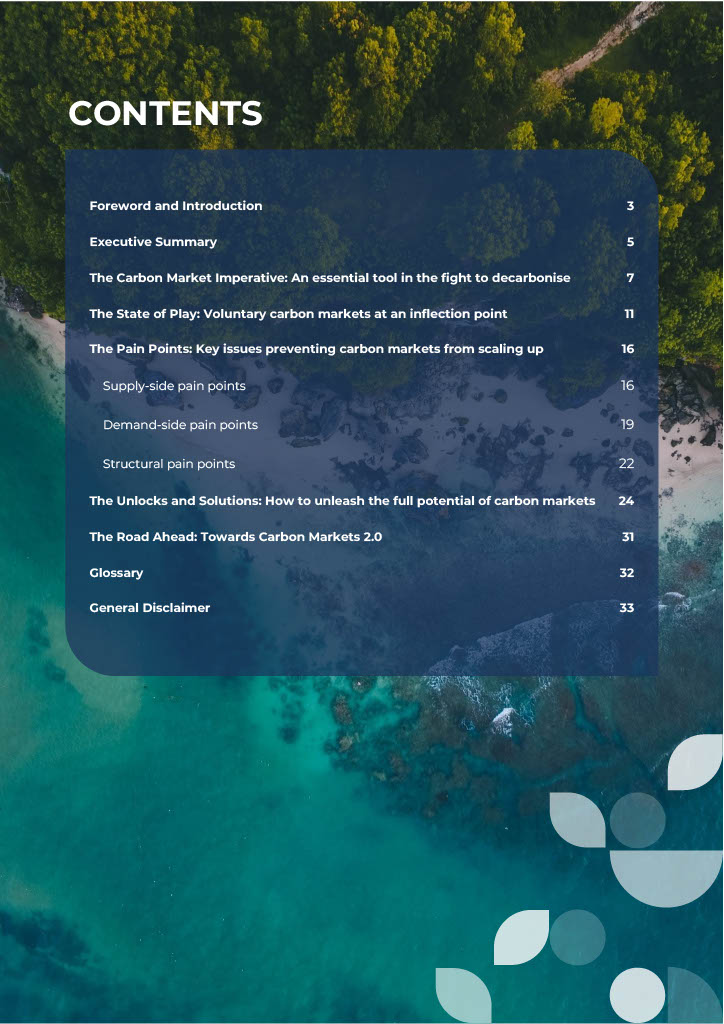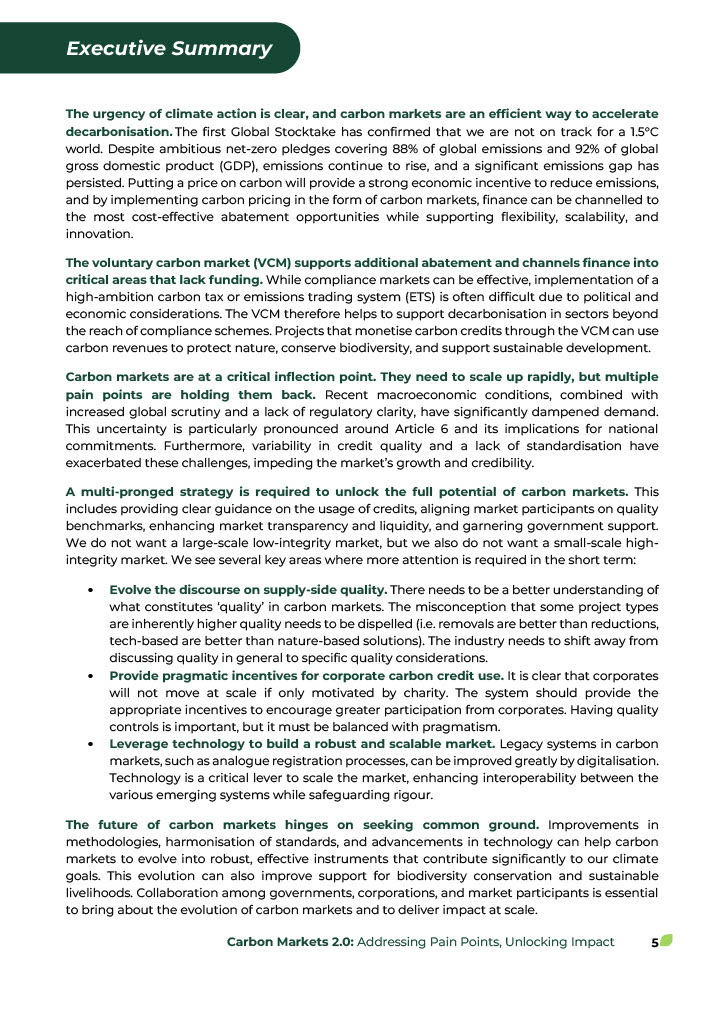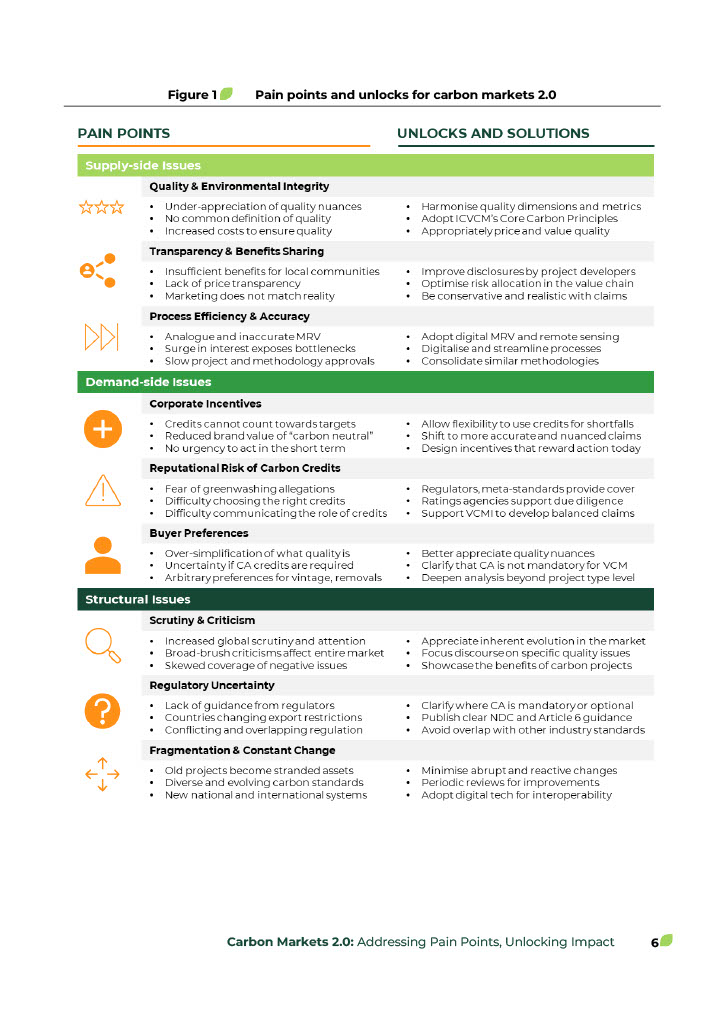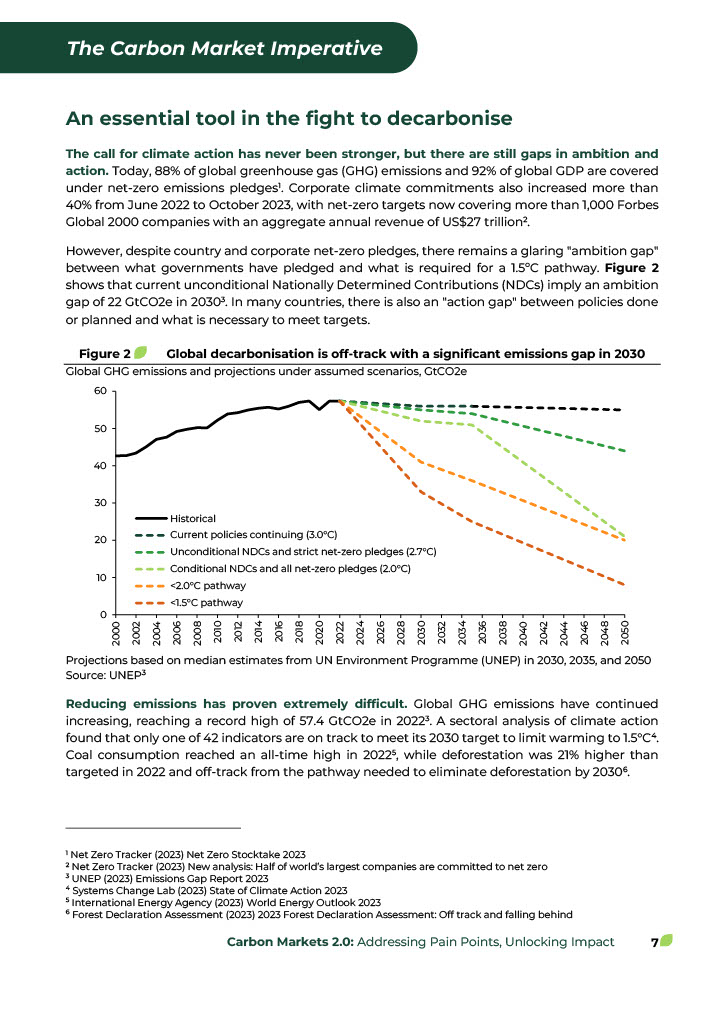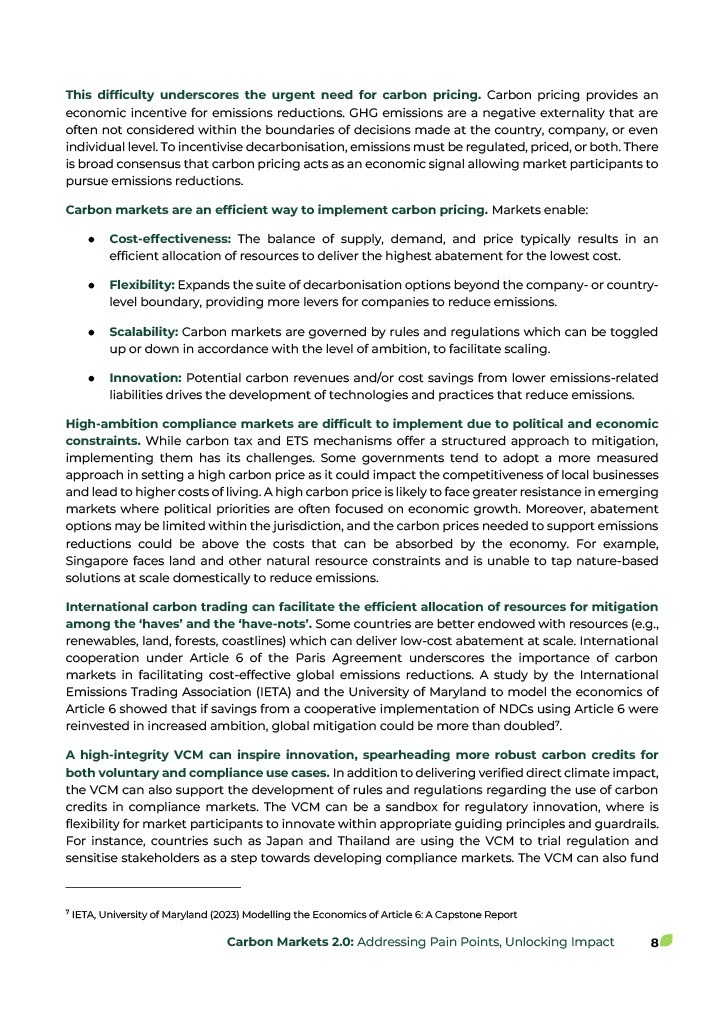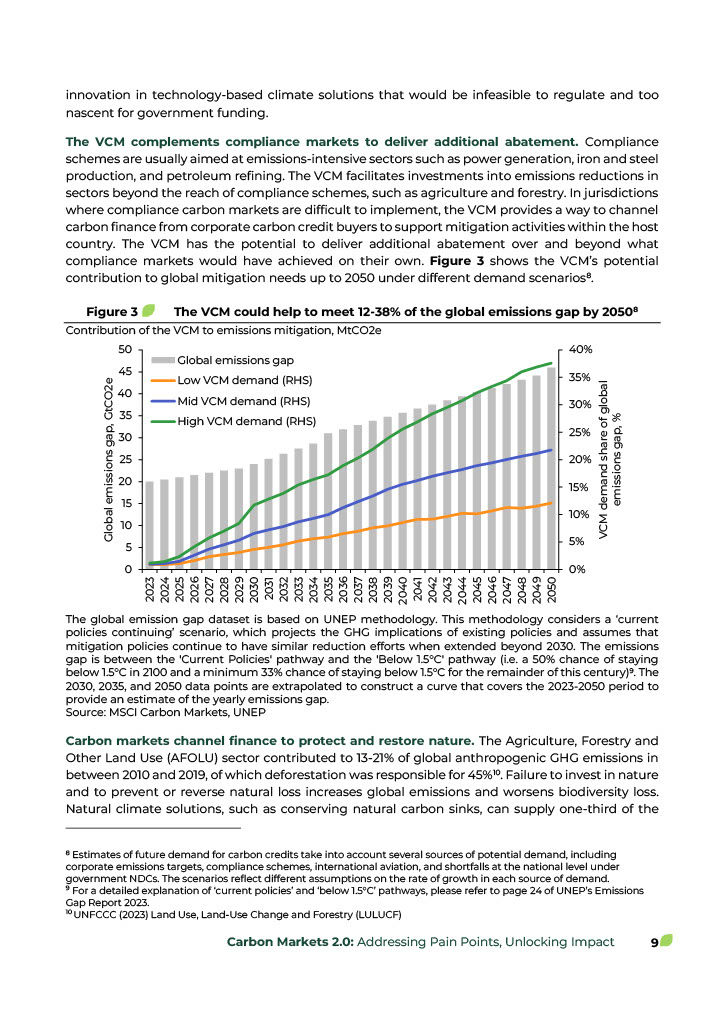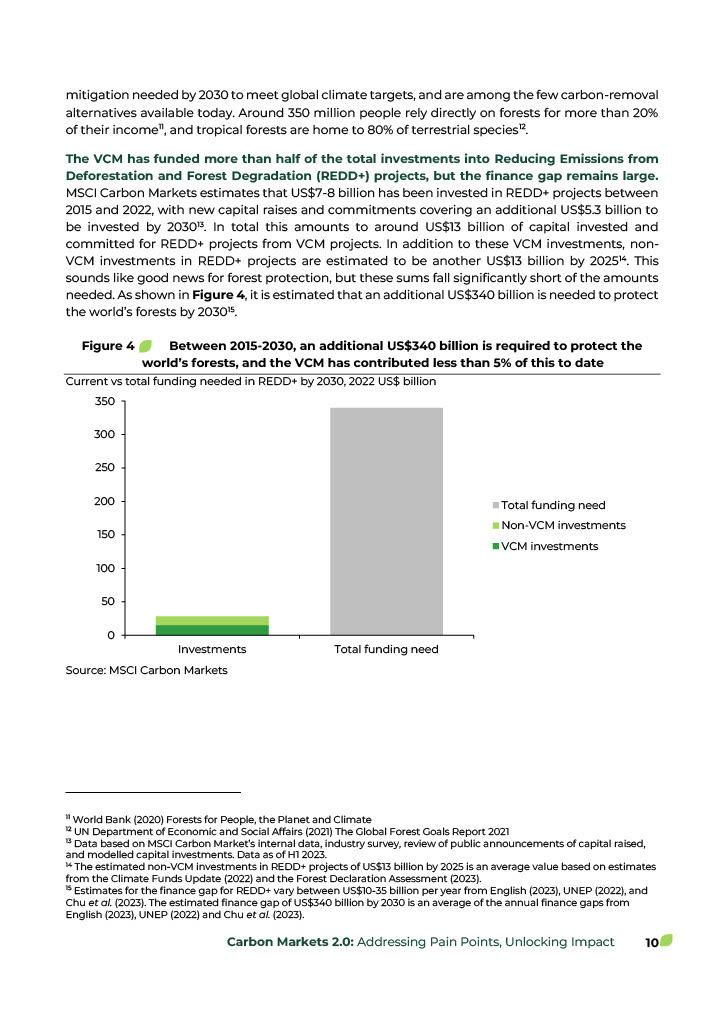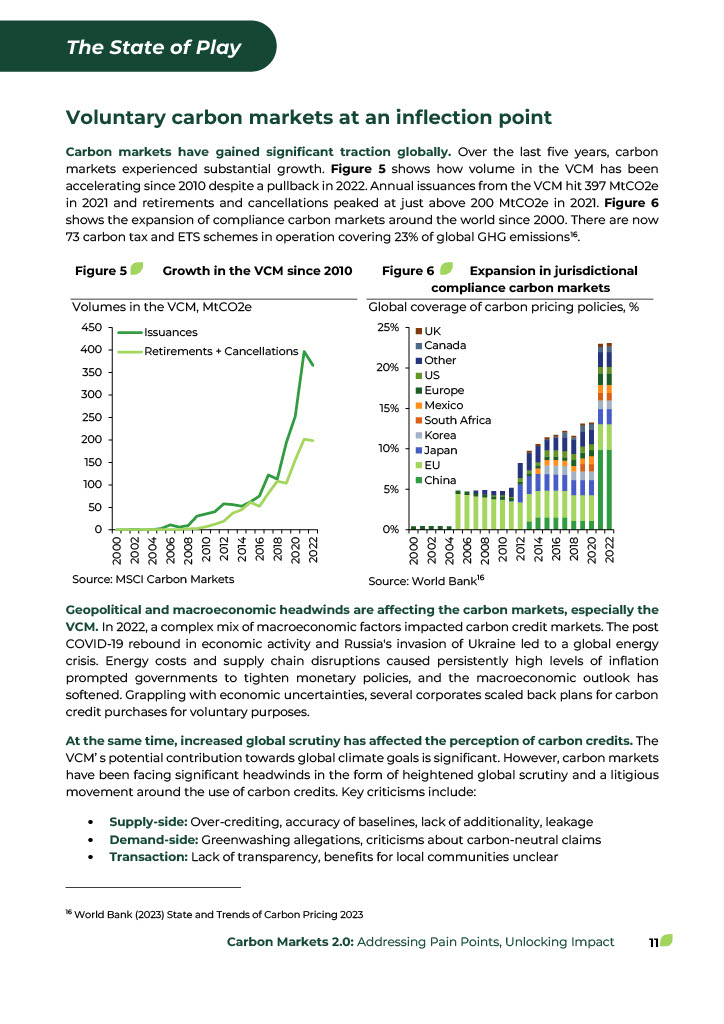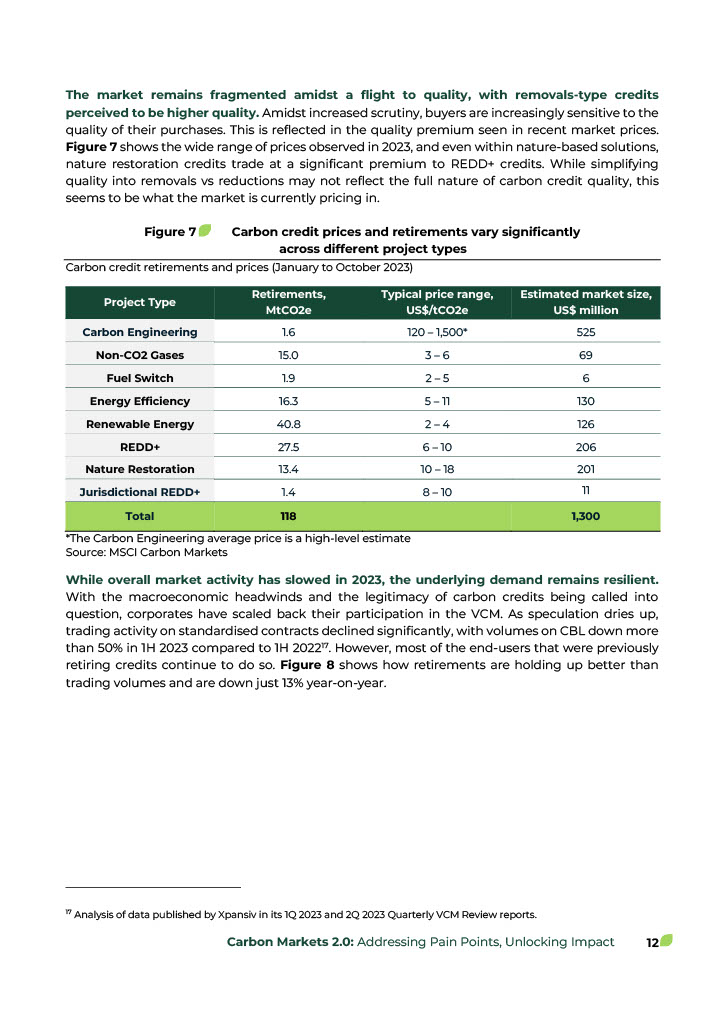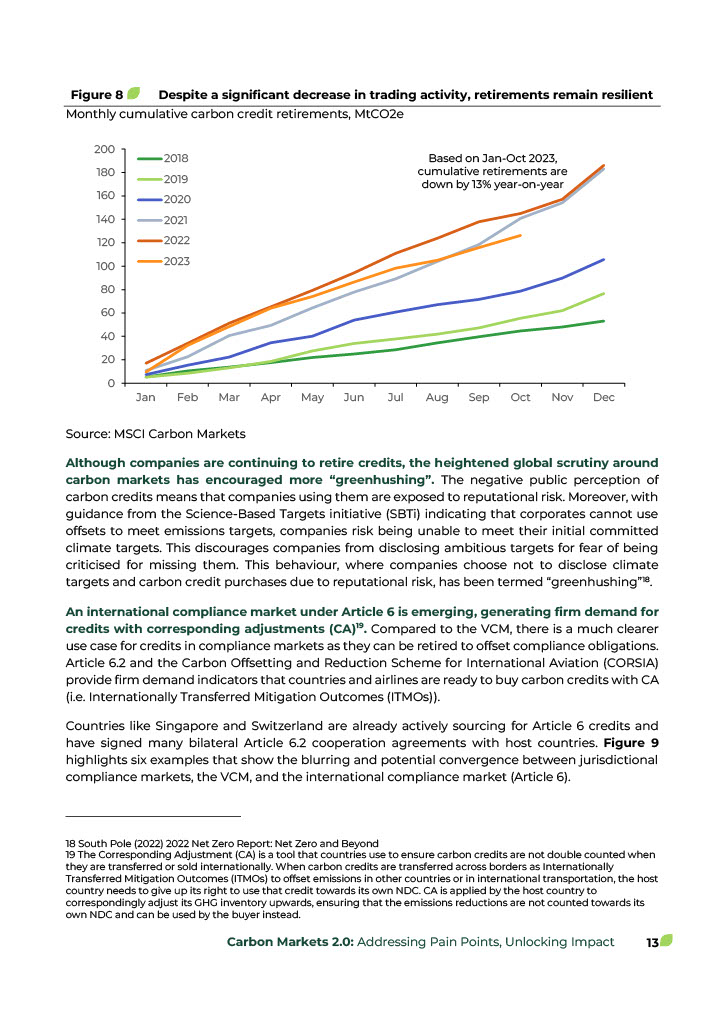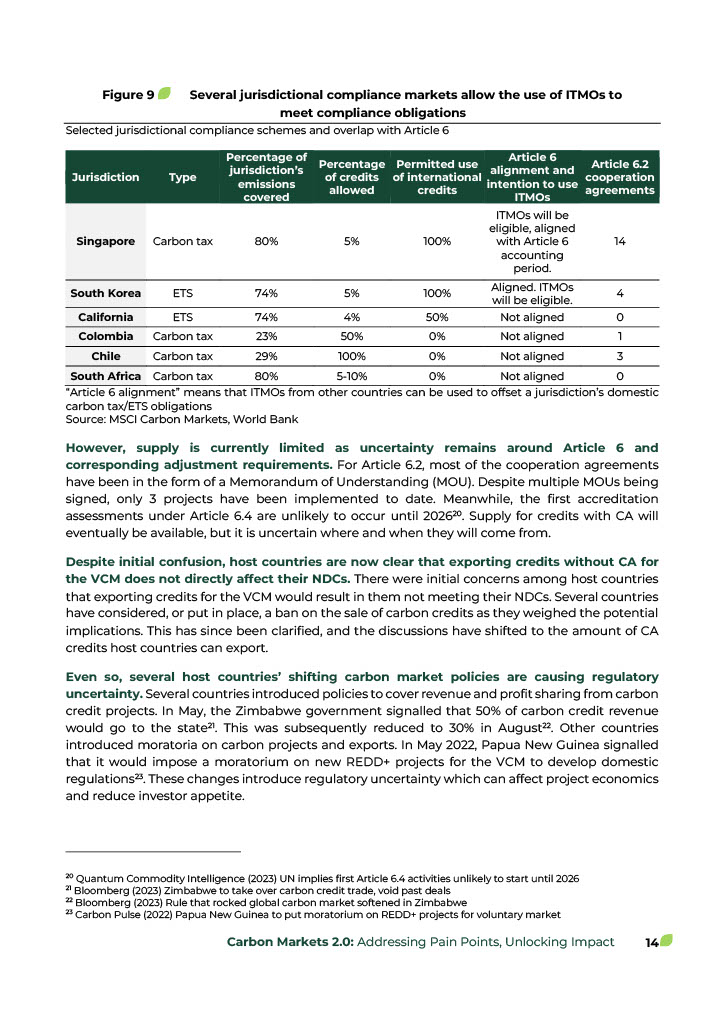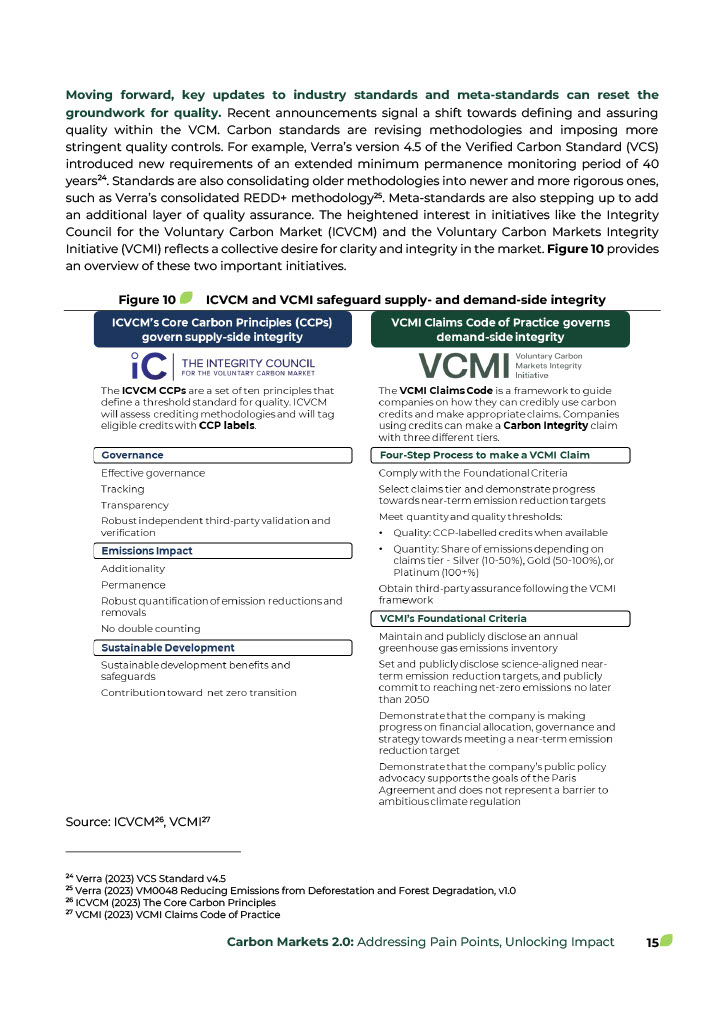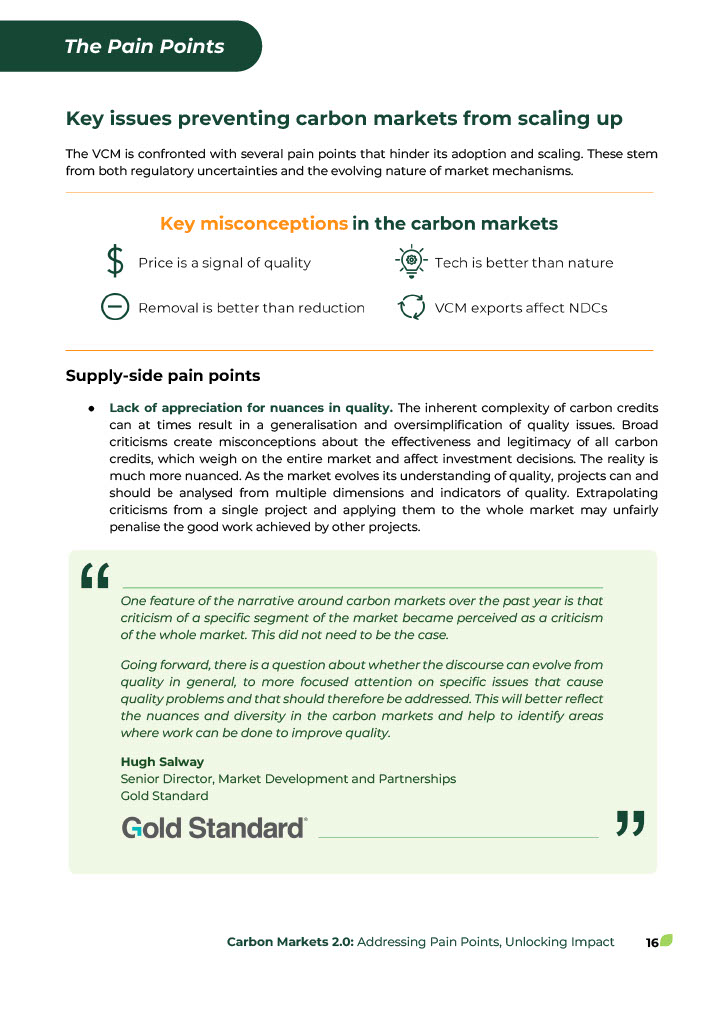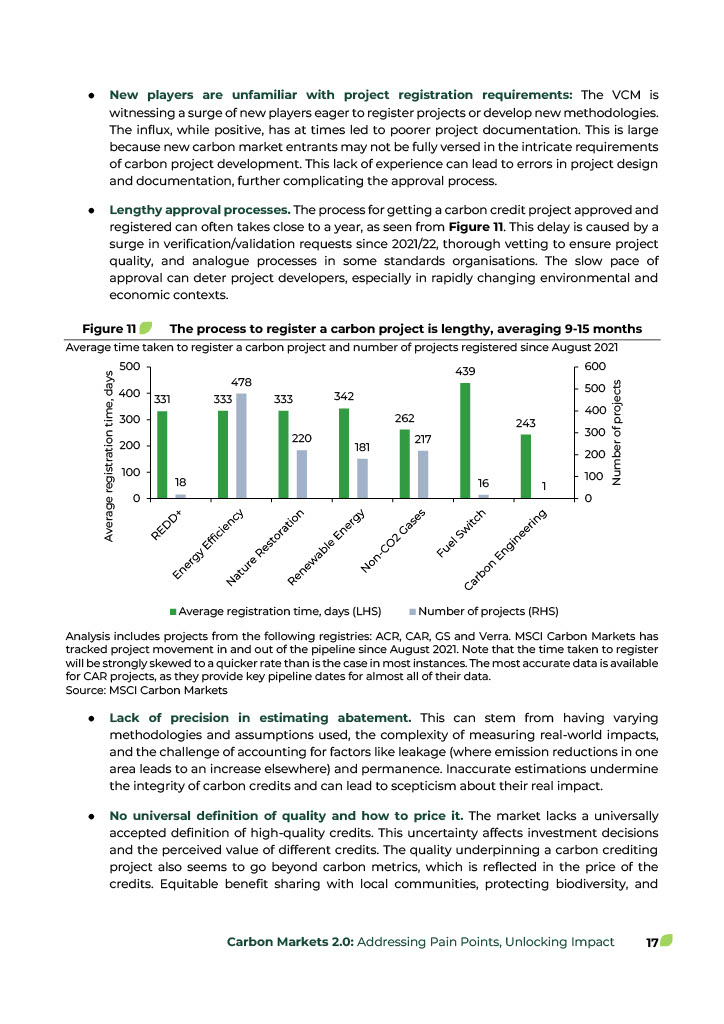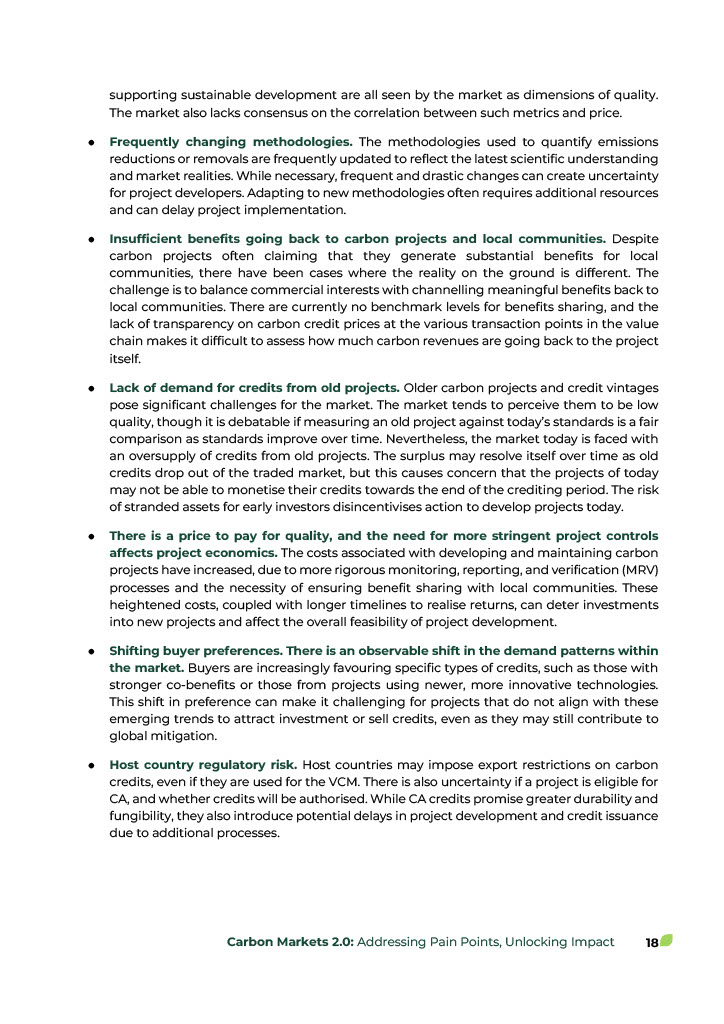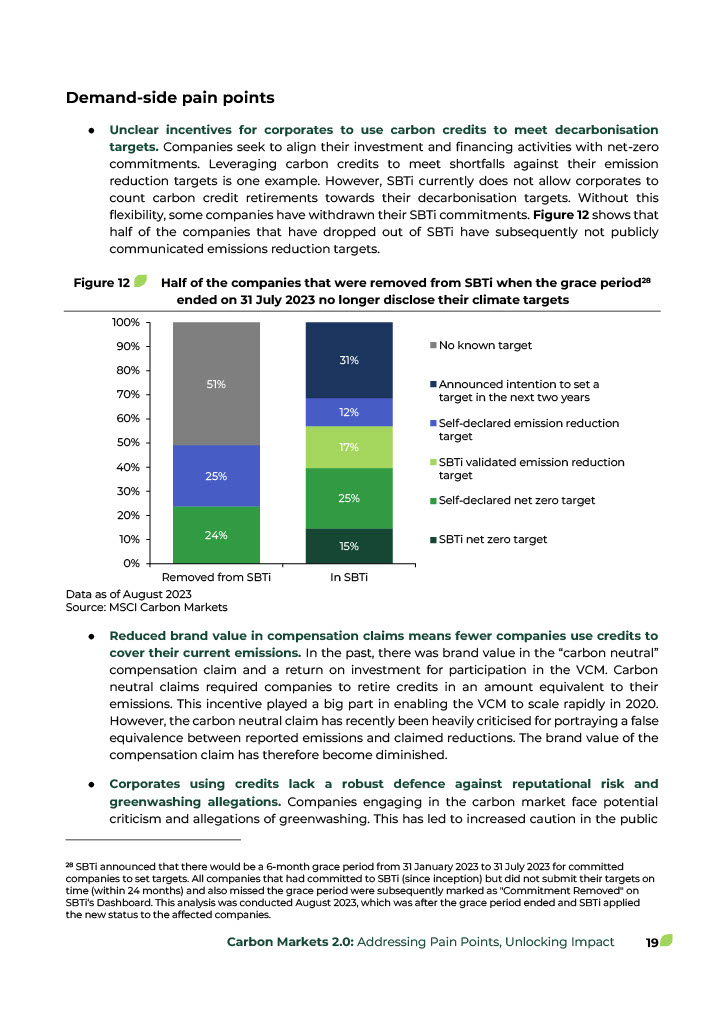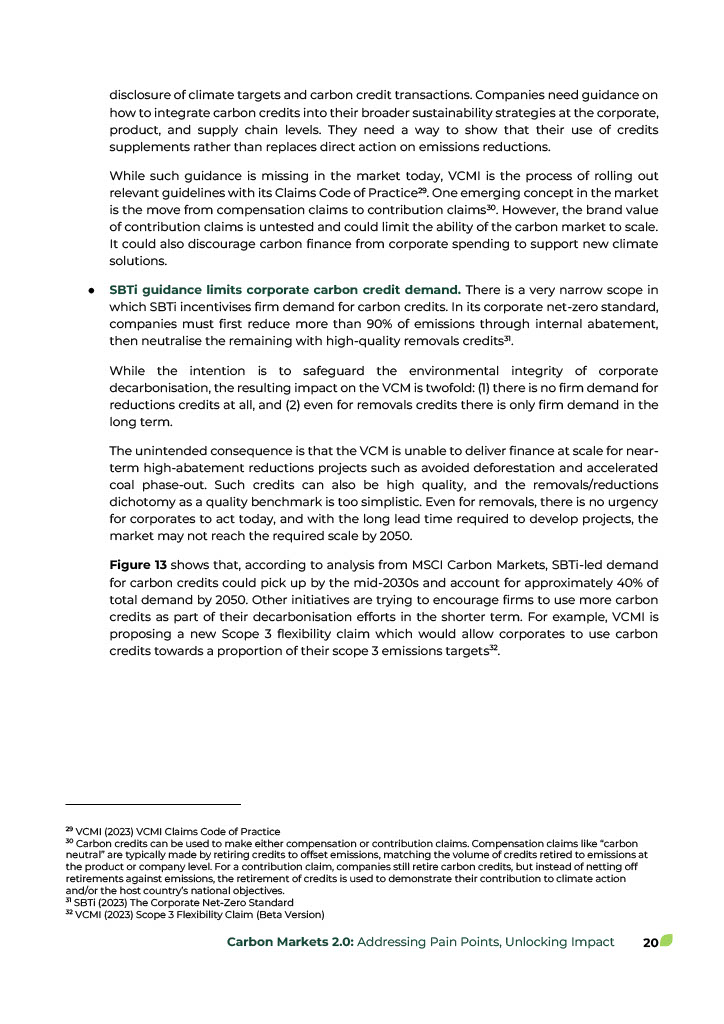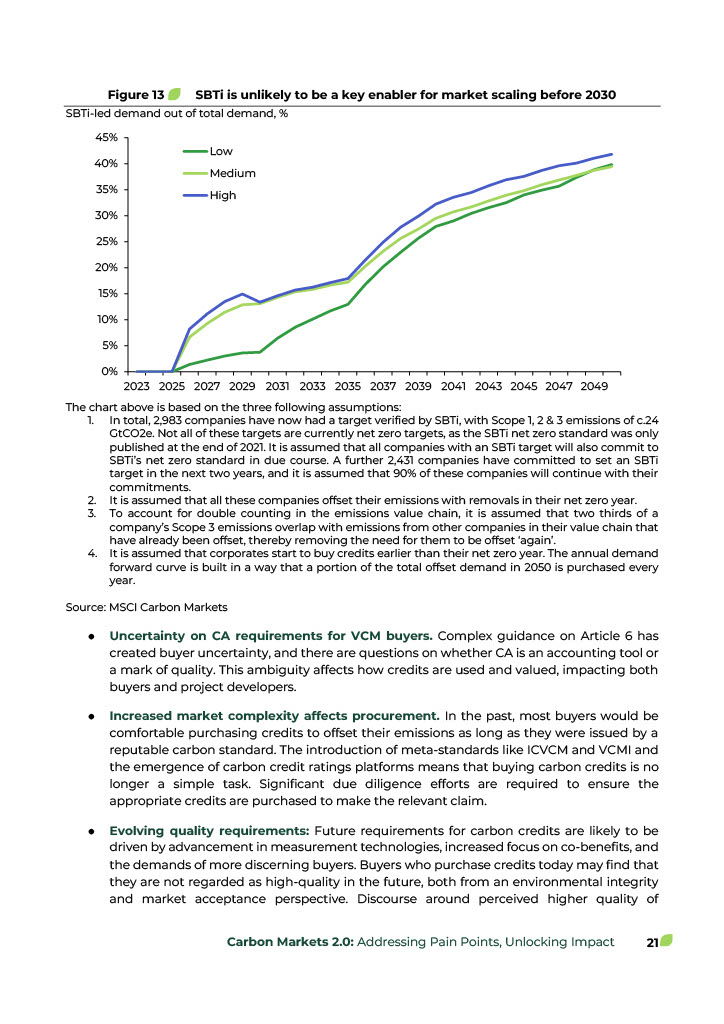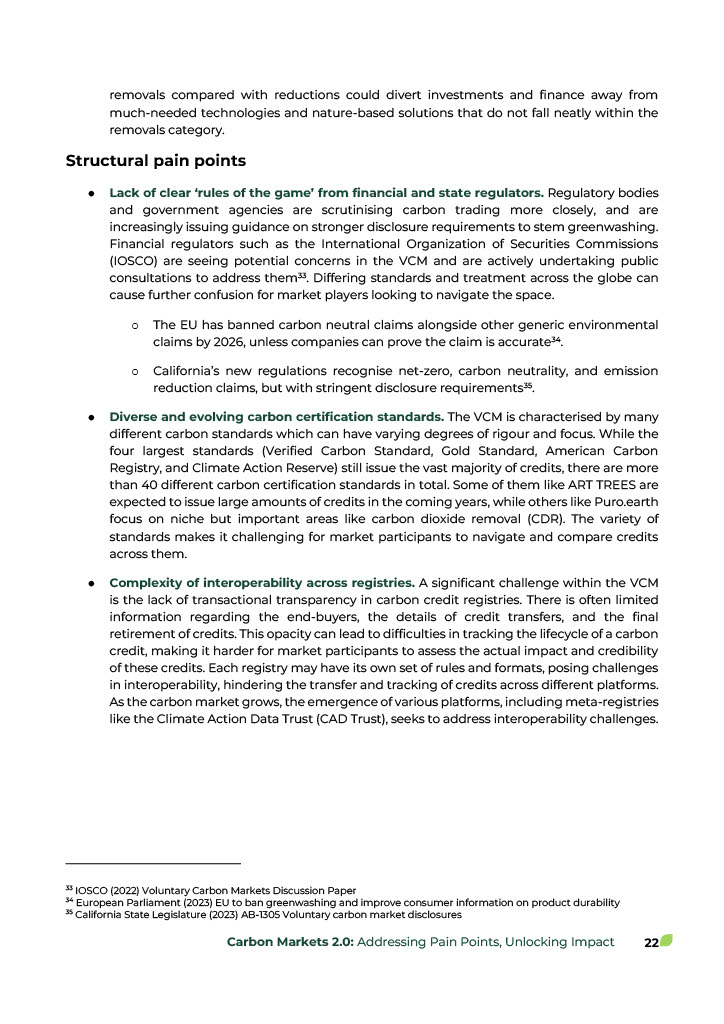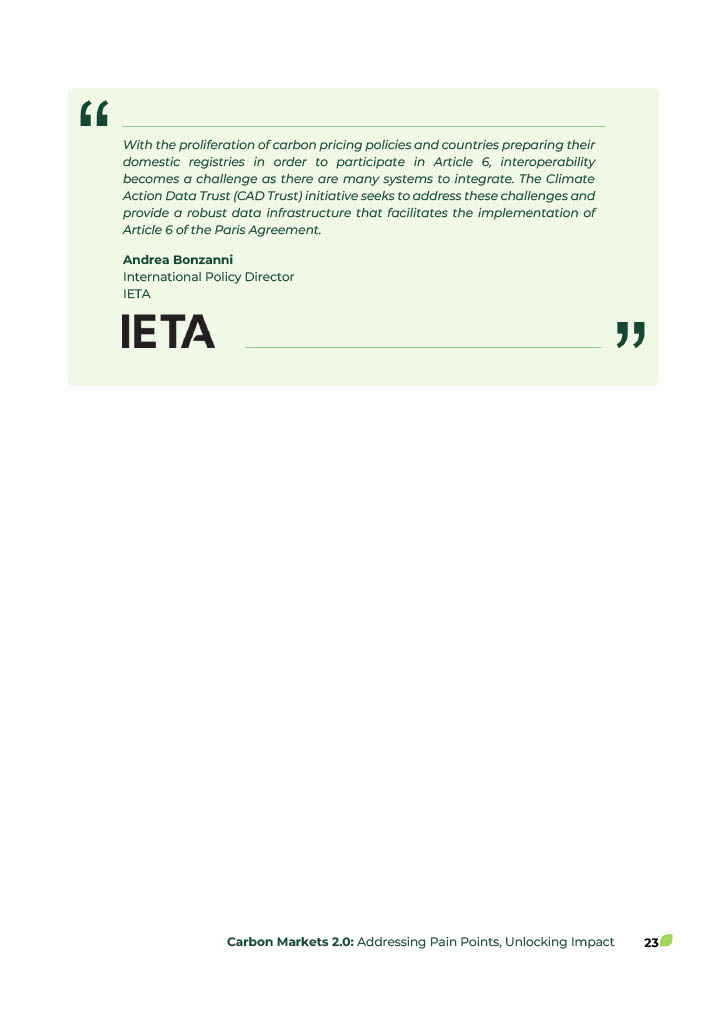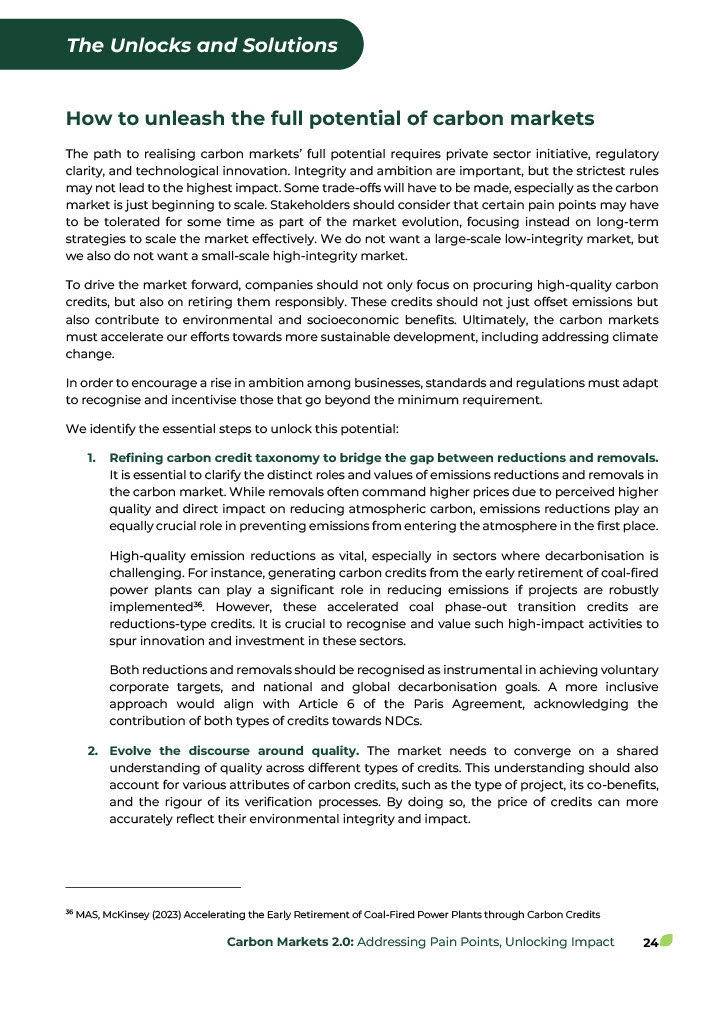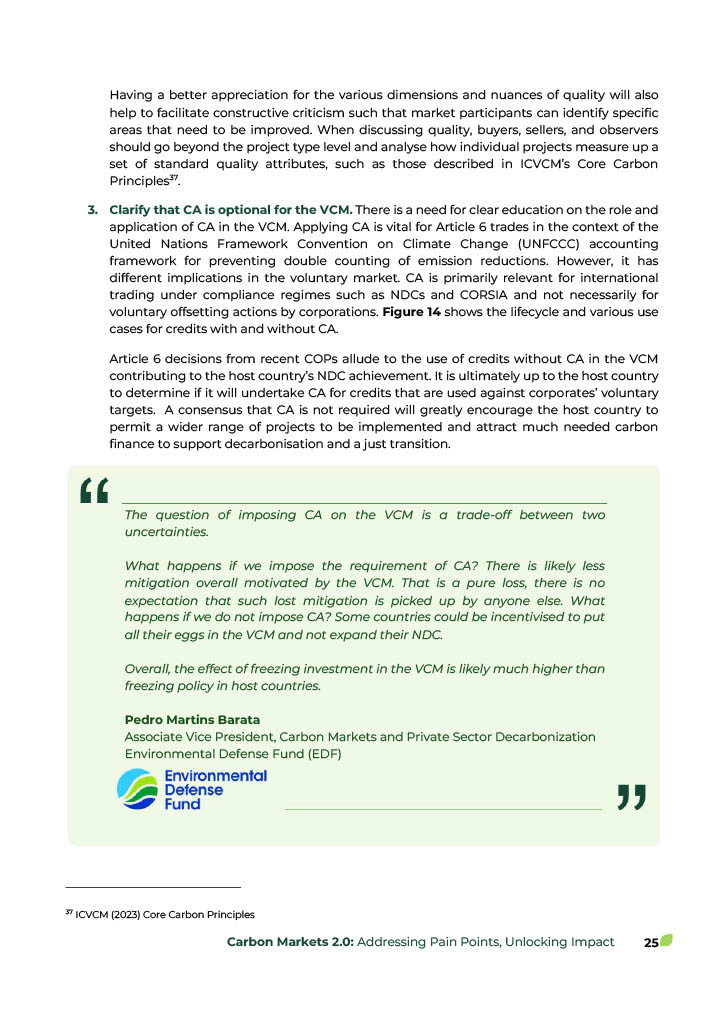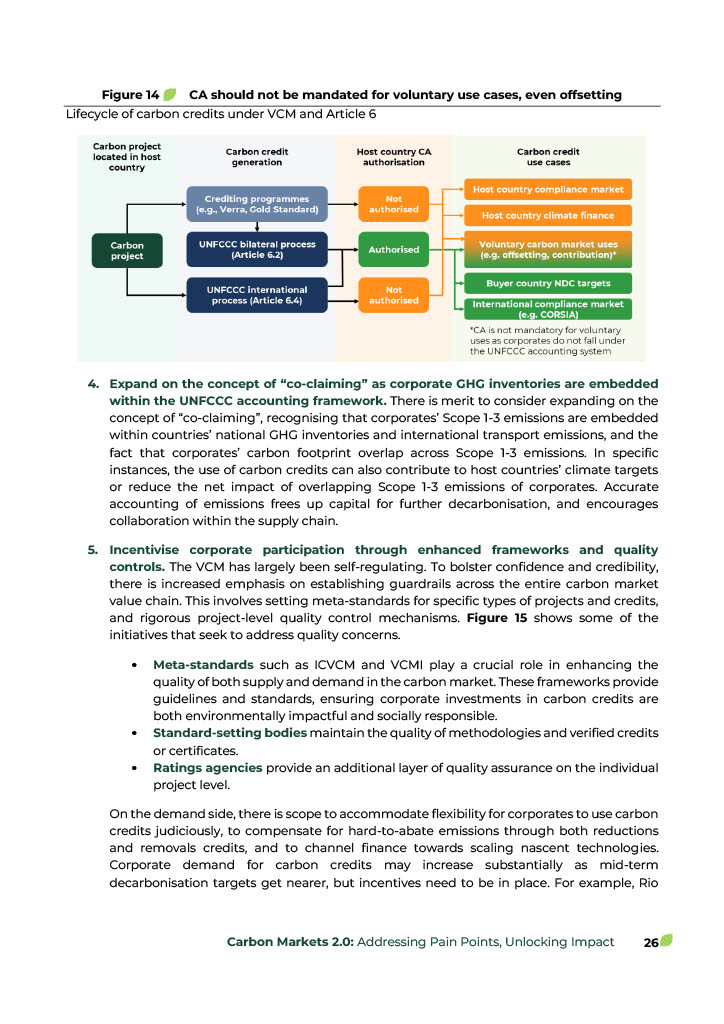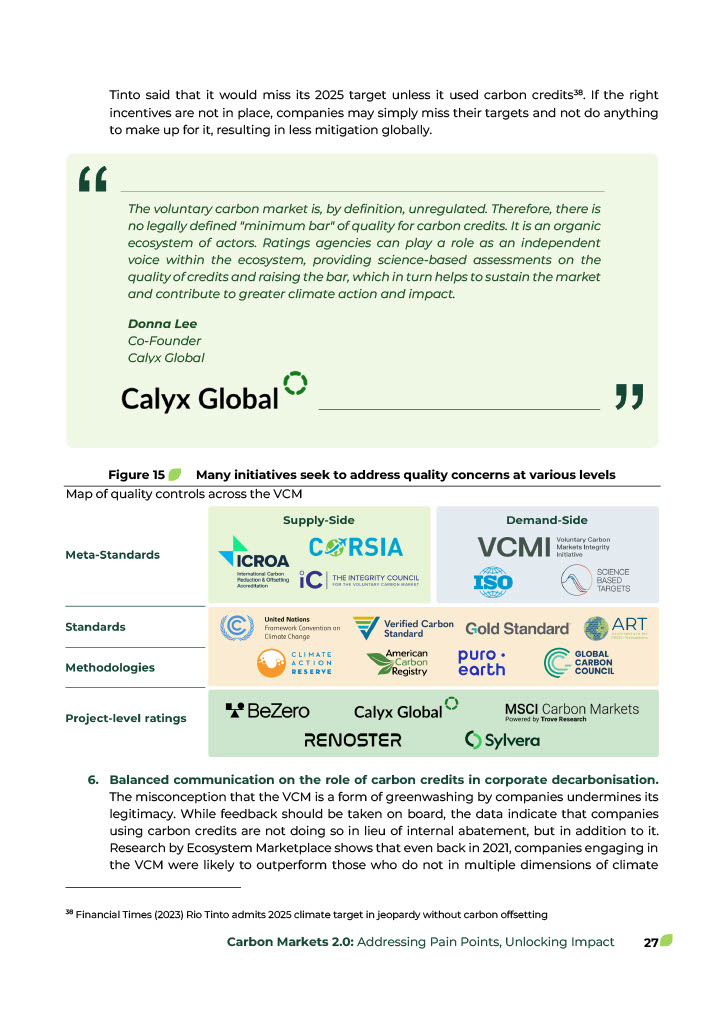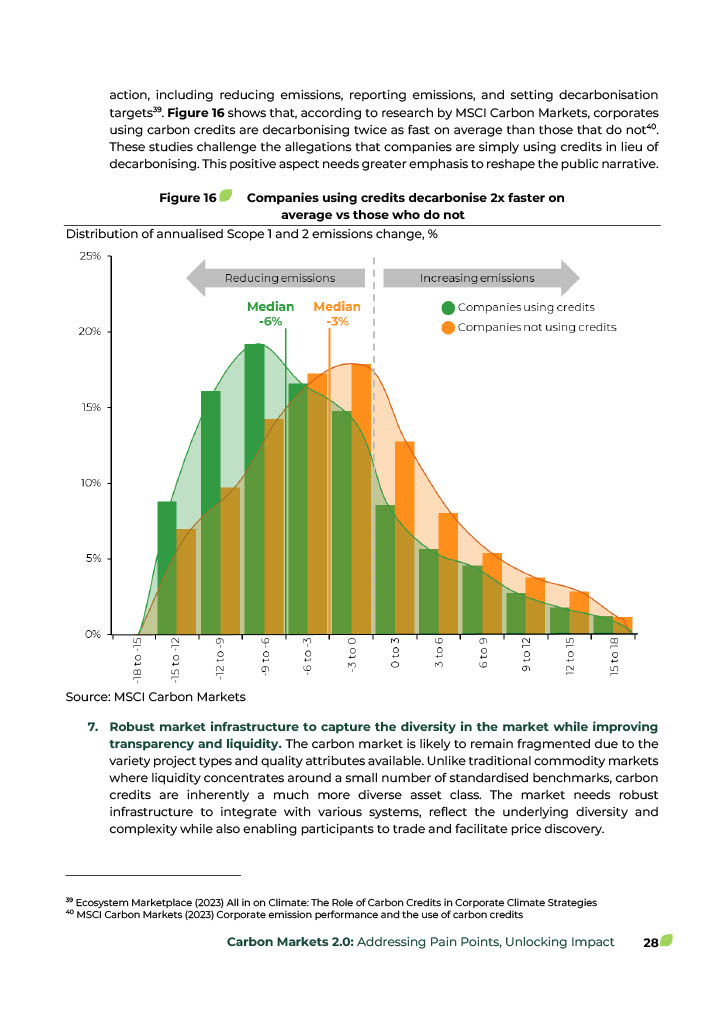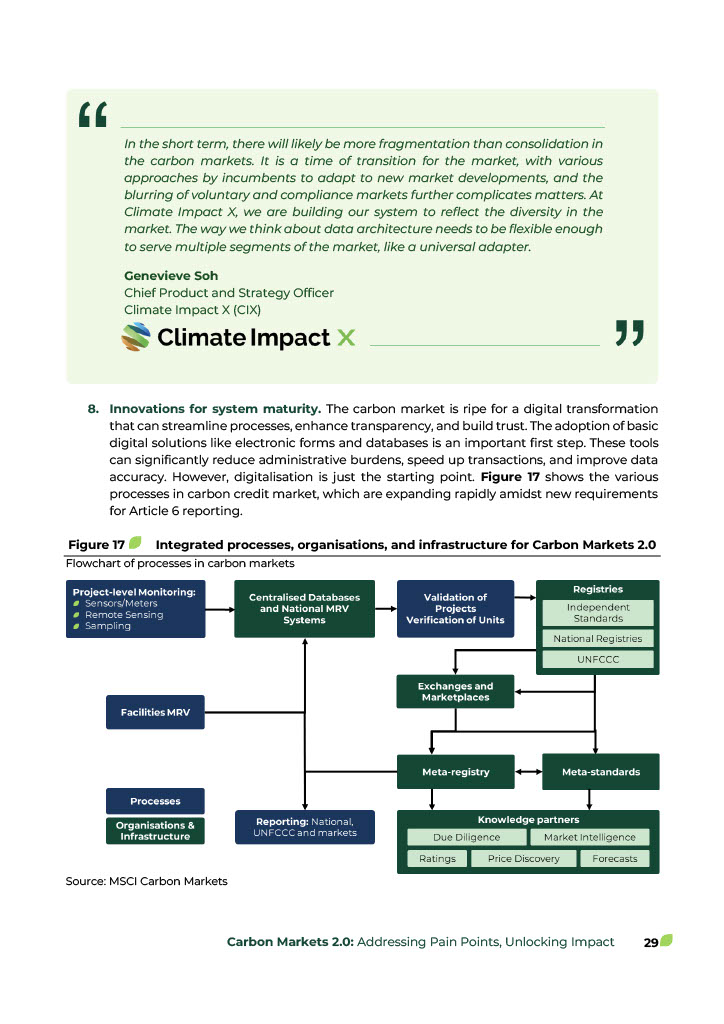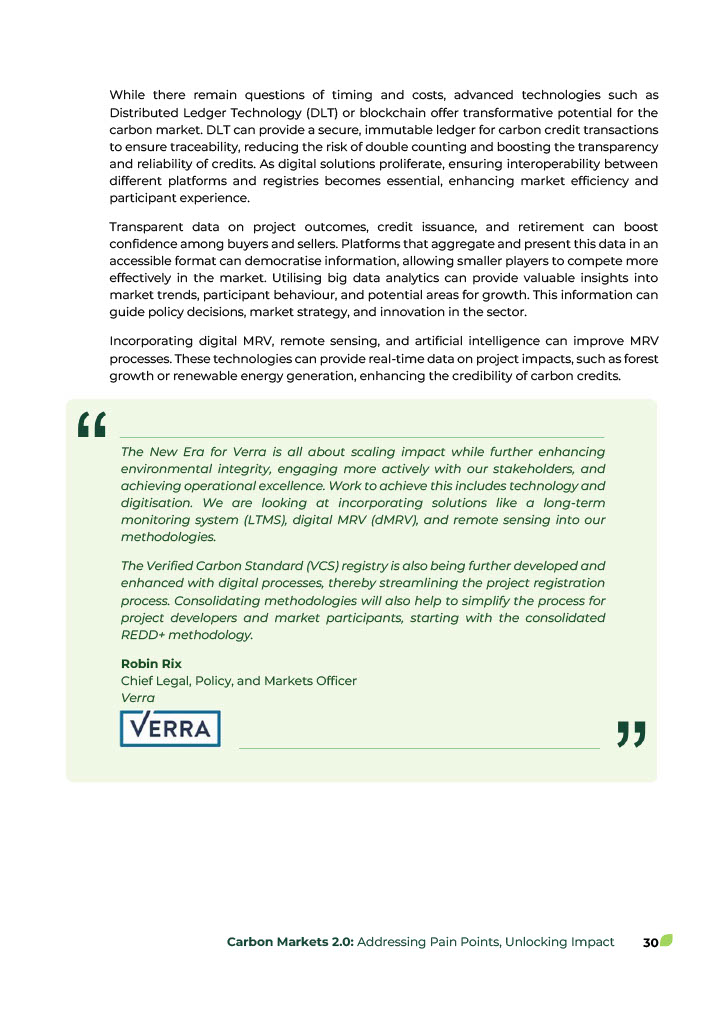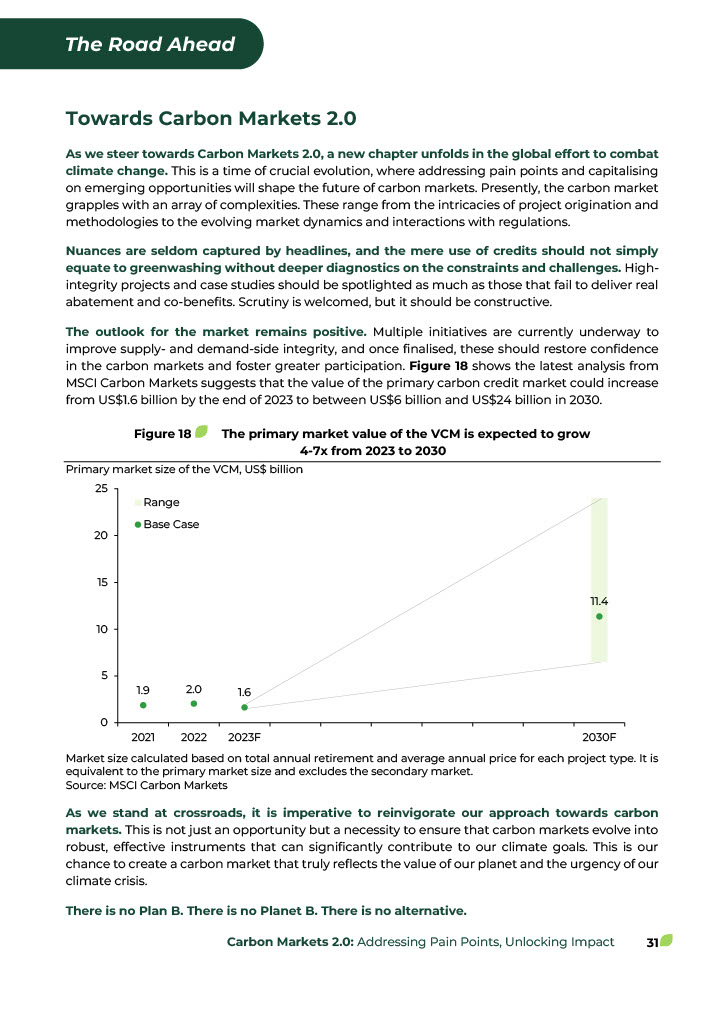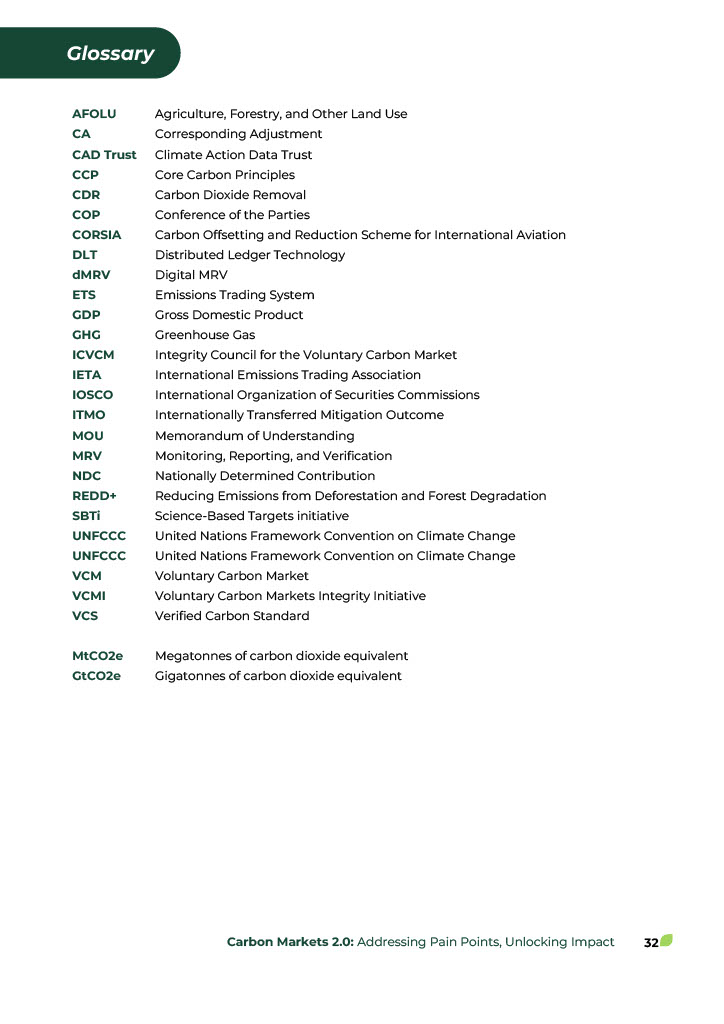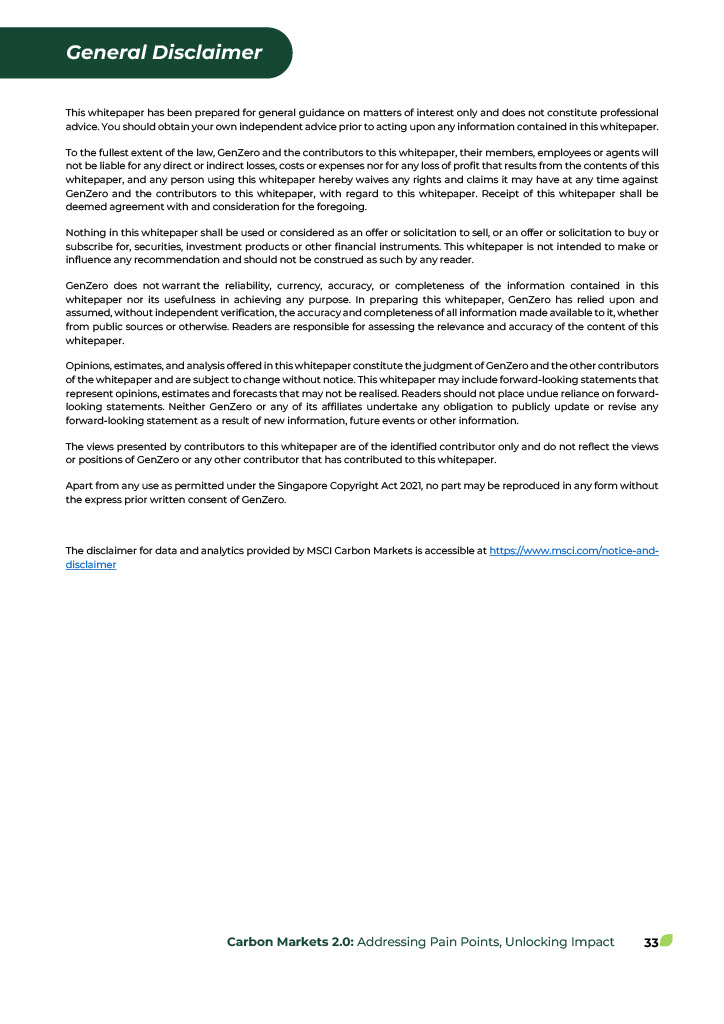By Anshari Rahman, Edmund Siau
The urgency of climate action is clear, and carbon markets are an efficient way to accelerate decarbonisation. The first Global Stocktake has confirmed that we are not on track for a 1.5°C world. Despite ambitious net-zero pledges covering 88% of global emissions and 92% of global gross domestic product (GDP), emissions continue to rise, and a significant emissions gap has persisted. Putting a price on carbon will provide a strong economic incentive to reduce emissions, and by implementing carbon pricing in the form of carbon markets, finance can be channelled to the most cost-effective abatement opportunities while supporting flexibility, scalability, and innovation.
The voluntary carbon market (VCM) supports additional abatement and channels finance into critical areas that lack funding. While compliance markets can be effective, implementation of a high-ambition carbon tax or emissions trading system (ETS) is often difficult due to political and economic considerations. The VCM therefore helps to support decarbonisation in sectors beyond the reach of compliance schemes. Projects that monetise carbon credits through the VCM can use carbon revenues to protect nature, conserve biodiversity, and support sustainable development.
Carbon markets are at a critical inflection point. They need to scale up rapidly, but multiple pain points are holding them back. Recent macroeconomic conditions, combined with increased global scrutiny and a lack of regulatory clarity, have significantly dampened demand. This uncertainty is particularly pronounced around Article 6 and its implications for national commitments. Furthermore, variability in credit quality and a lack of standardisation have exacerbated these challenges, impeding the market’s growth and credibility.
A multi-pronged strategy is required to unlock the full potential of carbon markets. This includes providing clear guidance on the usage of credits, aligning market participants on quality benchmarks, enhancing market transparency and liquidity, and garnering government support. We do not want a large-scale low-integrity market, but we also do not want a small-scale high-integrity market. We see several key areas where more attention is required in the short term:
- Evolve the discourse on supply-side quality. There needs to be a better understanding of what constitutes ‘quality’ in carbon markets. The misconception that some project types are inherently higher quality needs to be dispelled (i.e. removals are better than reductions, tech-based are better than nature-based solutions). The industry needs to shift away from discussing quality in general to specific quality considerations.
- Provide pragmatic incentives for corporate carbon credit use. It is clear that corporates will not move at scale if only motivated by charity. The system should provide the appropriate incentives to encourage greater participation from corporates. Having quality controls is important, but it must be balanced with pragmatism.
- Leverage technology to build a robust and scalable market. Legacy systems in carbon markets, such as analogue registration processes, can be improved greatly by digitalisation. Technology is a critical lever to scale the market, enhancing interoperability between the various emerging systems while safeguarding rigour.
The future of carbon markets hinges on seeking common ground. Improvements in methodologies, harmonisation of standards, and advancements in technology can help carbon markets to evolve into robust, effective instruments that contribute significantly to our climate goals. This evolution can also improve support for biodiversity conservation and sustainable livelihoods. Collaboration among governments, corporations, and market participants is essential to bring about the evolution of carbon markets and to deliver impact at scale.
Acknowledgments
The authors are grateful to the many industry leaders who graciously shared their time to provide input into this paper. We are also grateful to MSCI Carbon Markets (formerly Trove Research) for permitting the use of their data and analytics in this paper.
© Carbon Solutions Platform Pte. Ltd. All Rights Reserved.
The companies in which Carbon Solutions Platform Pte. Ltd. directly and indirectly owns investments are separate legal entities. In this article and presentation, “GenZero” is sometimes used for convenience where references are made to Carbon Solutions Platform Pte. Ltd. and its subsidiaries in general.


